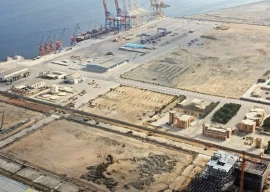
JJamaatud Dawa and Lashkar-e-Taiba chief Hafiz Saeed was sentenced to another 33 years behind bars over the weekend, after an anti-terrorism court found him guilty on several counts of terror financing. However, since the sentences will run concurrently, Saeed might not end up spending any additional time in prison since he is already in prison after several convictions, the longest of which still has about eleven years of jail time remaining.
Still, the government will be hoping that the latest sentence is enough to convince FATF that the country is meeting, if not exceeding, its conditions to remove Pakistan from its grey list. It is no coincidence that Saeed, who is accused by India of being the mastermind of the 2008 Mumbai attacks, was first convicted in a case just a few weeks before an FATF review meeting. However, while it is easy to claim that Indian pressure led to Saeed’s conviction, the truth is that he is wanted in several terrorism cases. Saeed’s avoidance of extended jail time in the past was always a problematic subject, with blame thrown at every arm of the government and the justice system, despite Saeed and several other extremists having lost state patronage several years ago.
Unfortunately, while better-known figures such as Saeed have been prosecuted — successfully and unsuccessfully — in recent years, the networks they had set up remain a problem, not just for the world community but also for everyday Pakistanis. These groups are, after all, the major contributors to radicalisation and terrorist recruitment. But while they have obviously grown too large to be nipped in the bud, there are still opportunities to solidly address them, if only the political will were there. The problem is that, in the absence of such will, these groups will continue the cycle of being banned and then popping up with new names and — on paper — new leadership. Government machinery needs to be proactive to ensure that this stops happening. While recruiting networks have most certainly been weakened in recent years, they need to be destroyed.
Published in The Express Tribune, April 12th, 2022.
Like Opinion & Editorial on Facebook, follow @ETOpEd on Twitter to receive all updates on all our daily pieces.














COMMENTS
Comments are moderated and generally will be posted if they are on-topic and not abusive.
For more information, please see our Comments FAQ